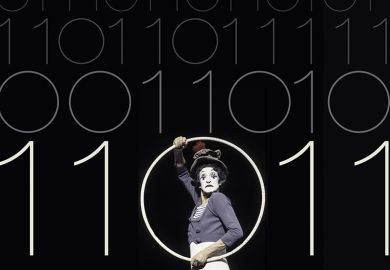The French-speaking Swiss Ferdinand de Saussure is regarded as a father of modern linguistics and a pioneer in Indo-European studies. As he wrote in French, his works have been somewhat overlooked in English-speaking circles. This book, which promises "a fresh new account of Saussure's work", starts off reasonably well although its intended audience is never clear: "morphophonology" and "glottological" pop up without explanation, while other terms such as "diachronic" are glossed.
The first chapter, by Anna Morpurgo Davies, is at once interesting and unsatisfying. Interesting when she quotes Saussure in a letter to the French linguist Antoine Meillet lamenting the lack of a proper terminology.
Unsatisfying because, when you read Saussure's Cours de Linguistique Générale ( CLG ), you are indeed struck by the lack of those terms, now familiar, so necessary for the clear discussion and description of language and languages. That past state of affairs deserved more airing. Minor quibbles, but their accumulation irks.
In the next chapter, "The Paris years" by Carol Sanders, interest is kindled afresh through the person of Michel Breal, who worked as a school inspector. Breal's views of language and his pedagogical recommendations make him an interesting fellow; I part with Sanders when she reproaches him as "he never fully shakes off a diachronic (historical) approach". Where she sees a failure, I see a rational approach. Should one excise the historical dimension of language when anyone can see it at work in one's own lifetime? Think of "gay" and "liaise". She also sees "internal contradictions" in Breal's claim that "a language is not, as is too often assumed, a system... It is a collection of signs, which have accumulated over the centuries." I see none. There is more than one way to conceive of language. You can see it as a chaotic jumble that is forced by its own weight into some sort of order. But this, again, is a minor quibble.
More of a problem is when Sanders writes: "Even closer perhaps to Saussure's thinking is Taine's comment... (from page 156 of CLG ): 'There is no thought without words, any more than there are words without thoughtI'
(1882:386)." Turning to page 156 of CLG , one finds that Saussure wrote nothing like what is attributed to Taine, but rather that thought is naturally chaotic and takes shape only when broken down to be translated into words: "L a pensée, chaotique de sa nature, est forcée de se préciser en se decomposant ." If Saussure has been so grossly misrepresented, what of Taine, whose comment goes against daily experience? But Taine (1882) is missing from the bibliography.
Lured by the chapter's promising title, I went directly to Stephen Hutchings's "The Russian critique of Saussure". There and then my interest vanished, to be replaced by growing suspicions that became certainties when I read that "scholars collaborated closely with futurist poets... who were themselves experimenting with autonomous sound and form to rediscover a prelapsarian Transrational Language in which, as in the glossolalia of certain religious sects...". A language beyond the grasp of reason (transrational) dating from before the Fall (prelapsarian)? Spare us the jargon and pull the other one. Yet I still credited Hutchings with having set up a straw man to be soon torn apart for demonstration purposes. The tearing-apart never came. Only more pedantic glossolalic garbage with the odd comic slapstick relief when Hutchings trips on his own logorrhoea, for example: "Saussure clearly does not deny the reality of units of speech larger or indeed smaller than the sentence." Just what does that leave? Perhaps Saussure denies the reality of the sentence? It does not matter, for Hutchings has already given his game away when he writes: "Jakobson effectively deconstructs the langue/parole distinction...". Deconstruct - the postmodernists' shibboleth.
In the next chapter, Steven Unger opens almost immediately with "the fact that Levi-Strauss identified the phoneme rather than the word as the minimal unit of signification...". If this were true, it would brand Levi-Strauss a monumental ass. You do not have to be a linguist to see this. If the phoneme were the minimal unit of signification, boat would be close in meaning to coat, goat, moat, bloat and boast . This mind-boggling misinterpretation of Lévi-Strauss is distilled out of a paragraph of his Anthropologie Structurale in which he merely paraphrases how linguists work from phonemic transcriptions, not phonetic. Later, Unger's long discussion of "Lacan's Saussurean algorithm" demonstrates that, like Lacan, he does not know an algorithm from a toilet graffito (which is what Lacan's "algorithm" is).
The further you progress into this book, the less Saussure you meet. He becomes a vanishing backdrop against which the luminaries of the postmodernist movement are paraded and preen themselves. This prompted me to revisit the first chapters with a less forgiving eye. What is one to make of phonetic units "which functioned as vowels between consonants and elsewhere and as consonants between vowels and in other environments"? I at first dismissed it as an amusing double lapsus, nothing more than sloppy proofreading. Second time around, I am no longer so sure.
This book's publication by a respected university press raises an interesting question. Even if there were infinite funding for higher education, what fruits are offerings such as this expected to bear, apart from the deconstruction of knowledge and science into ignorance and hocus-pocus?
Jacques B. M. Guy is a computer scientist who holds a PhD in linguistics from the Australian National University.
The Cambridge Companion to Saussure
Author - Carol Sanders
Publisher - Cambridge University Press
Pages - 303
Price - £45.00 and £19.99
ISBN - 0 521 80051 X and 80486 8
Register to continue
Why register?
- Registration is free and only takes a moment
- Once registered, you can read 3 articles a month
- Sign up for our newsletter
Subscribe
Or subscribe for unlimited access to:
- Unlimited access to news, views, insights & reviews
- Digital editions
- Digital access to THE’s university and college rankings analysis
Already registered or a current subscriber? Login



